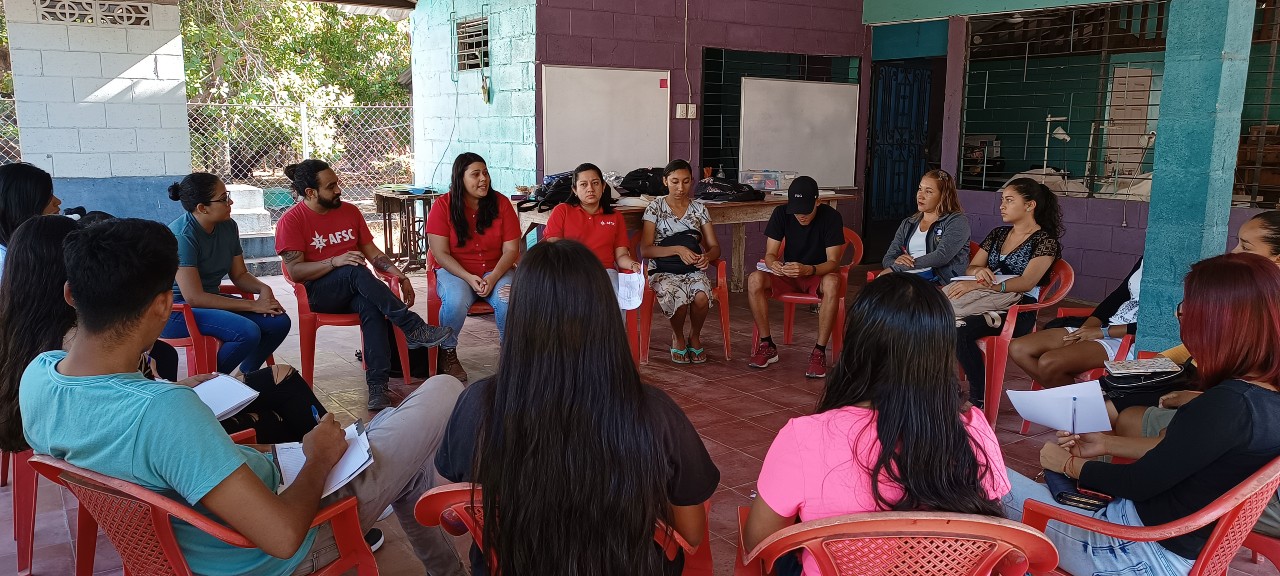
A dialogue with communities and youth of El Salvador in 2022. AFSC/El Salvador
On April 12, the European Union Council greenlighted the European Union-Central America Association Agreement, which makes it an instrument of international law that must be implemented by all countries involved. While there are numerous sectoral agreements between the EU and countries in the region, this is the first bi-regional association agreement. As such, it integrates political dialogue, cooperation, and trade. It opens opportunities to build bridges and strengthen regional and bi-regional alliances, among the EU, Central American governments, and civil society actors to address the structural causes of injustice and oppression in the spirit of the U.N. Millennium Development Goals.
As a Quaker organization, the American Friends Service Committee (AFSC) is committed to fostering sustainable peace and eliminating the roots causes of violence and oppression by building trust, social cohesion, and inclusive institutions.
In Central America, we have listened to and accompanied the communities most impacted by systems of oppression. We have seen some constructive investments in people-centered programs. We have also seen international cooperation strategies, projects, and policies that have had a high negative impact on the integrity of people, community cohesion, and their self-determination, as well as climate change.
Central America now faces huge challenges related to the root causes of forced migration and displacement, the respect for the free determination of peoples, as well as the deterioration of democracy, the rule of law, and human rights, including the protection for those who defend human rights and protect Mother Earth.
We have seen how EU diplomats contributed to local and national strategies for the rescue of democracy. One example is the recent election in Guatemala. There, Indigenous and ancestral authorities, historically marginalized communities and neighborhoods, international observation, diplomatic work, and other actions based on international law served as the decisive force for mobilizing broad public support for election integrity.
Considering this, the association agreement between the EU and Central America is a significant opportunity to promote multi-stakeholder engagement at the national, regional, and interregional levels for the fulfillment of this agreement. It offers chances for the critical inclusion of the voices of the historically most impacted communities.
AFSC will press for participation of people historically impacted by injustice and oppression. We will work to strengthen regional and international alliances to protect and expand civic space, and help build inclusive movements that promote peacebuilding with economic, cultural, environmental, and migrant justice.
